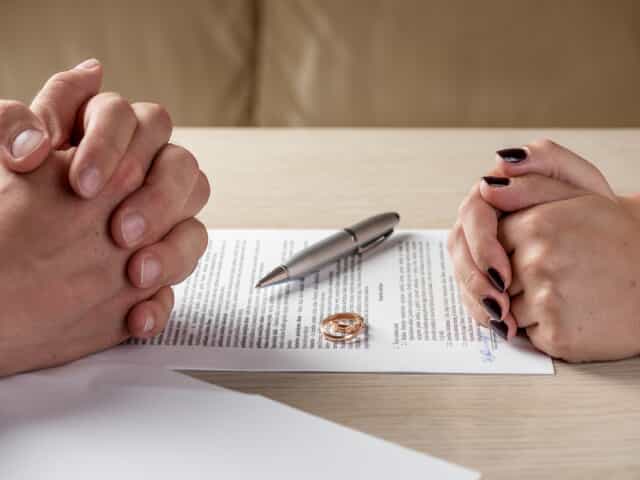Finding the right lawyer for your case can be the most critical decision you make during a legal process. Whether you’re facing a criminal charge, involved in a complex business dispute, or dealing with a family matter like divorce, choosing the right legal representation can significantly impact the outcome of your case. With so many attorneys available, it may feel overwhelming to select one who meets your specific needs. This guide will walk you through the key factors to consider when choosing the right lawyer for your case.
1. Understand Your Legal Needs
The first step in finding the right lawyer is understanding the type of legal issue you are dealing with. Legal cases fall into various categories, including but not limited to:
- Criminal law (e.g., defense in criminal charges)
- Family law (e.g., divorce, child custody)
- Corporate or business law (e.g., contracts, mergers)
- Personal injury law (e.g., accidents, negligence)
- Immigration law
- Real estate law
- Intellectual property law
Knowing your legal needs will help you narrow down the field of attorneys who specialize in the specific area related to your case. For example, a family law attorney will not be equipped to handle a patent case, and a criminal defense lawyer might not be the best choice for a real estate dispute. Specialization is essential.
2. Research the Lawyer’s Specialization and Experience
Once you know the area of law you need help with, start looking for lawyers who specialize in that field. Lawyers typically focus on specific practice areas, which allows them to gain deep expertise and handle cases efficiently. You wouldn’t hire a general physician for heart surgery, and the same principle applies to lawyers.
Beyond specialization, consider the attorney’s experience level. Ask questions like:
- How many years has the lawyer been practicing in this area of law?
- How many cases similar to yours has the attorney handled?
- What is the lawyer’s success rate with cases like yours?
The more experienced a lawyer is with cases similar to yours, the better they will understand the nuances, challenges, and strategies required. Experience often brings a wealth of knowledge, connections, and insights that can significantly benefit your case. Are you looking for more information regarding the right lawyer for your case, check out with the legal team at MRH Solicitors to learn more.
3. Check Credentials and Reputation
After identifying a few potential lawyers, the next step is verifying their credentials and checking their reputation. Here’s how:
- State Bar Association: Most attorneys are registered with a state bar association, where you can check whether they are licensed and in good standing. This ensures they are legally permitted to practice and have no major disciplinary actions on their record.
- Peer Reviews and Ratings: Websites like Martindale-Hubbell, Avvo, and Super Lawyers offer peer-reviewed ratings. These ratings evaluate attorneys based on various factors such as legal ability, ethical standards, and client satisfaction. Peer endorsements from other lawyers can indicate whether a lawyer is respected in their field.
- Client Testimonials and Reviews: Former clients’ reviews provide invaluable insight into a lawyer’s communication style, reliability, and overall service. While online reviews should be taken with a grain of caution, a pattern of positive or negative reviews can reveal important trends in a lawyer’s client relations.
4. Evaluate Communication and Availability
Effective communication between you and your lawyer is crucial. Your attorney will need to explain complex legal concepts, keep you updated on your case, and be available to address your concerns. When assessing a potential lawyer, consider their communication style and availability:
- How accessible is the lawyer? Do they respond to phone calls and emails promptly? Will you have direct access to the lawyer, or will most of your communication be through a paralegal or assistant?
- How clear and straightforward are they in explaining your case? Legal jargon can be confusing, so you need a lawyer who can explain things in a way that you can understand, enabling you to make informed decisions.
- Do they listen to you? Your lawyer should take the time to understand your goals and concerns, rather than pushing you toward decisions that may not align with your best interests.
If you feel that an attorney is too busy or isn’t providing enough attention to your case, this could be a red flag. You want a lawyer who is not only experienced but also attentive and available when you need them.
5. Assess the Lawyer’s Approach and Compatibility
Every lawyer has their own approach to handling cases. Some may take a more aggressive stance, while others prefer negotiation and settlement. You should feel comfortable with your lawyer’s style and confident in their approach.
- Aggressive vs. Collaborative: If you’re involved in a high-stakes litigation, you might prefer a lawyer with an aggressive stance, someone who is ready to fight hard in court. On the other hand, if you’re going through a divorce or a business dispute, you might want a lawyer who focuses on negotiation and compromise to achieve a resolution.
- Compatibility: Beyond the legal aspects, you will be working closely with this person for the duration of your case. Make sure your personalities and values align. You should feel comfortable discussing sensitive details with your lawyer, as trust is a critical component of this relationship.
6. Consider the Cost and Fee Structure
Understanding a lawyer’s fee structure is essential, as legal services can be costly. Different lawyers charge in various ways, including:
- Hourly rate: Many lawyers charge by the hour, with rates that vary depending on their experience and the complexity of the case. This is common in business, criminal, and family law cases.
- Flat fee: In some cases, a lawyer may charge a flat fee for specific services, such as drafting a will, handling an uncontested divorce, or filing bankruptcy.
- Contingency fee: For personal injury cases, many lawyers work on a contingency fee basis. This means they only get paid if you win or settle the case. The lawyer’s fee is a percentage of the award or settlement, typically 25-40%.
- Retainer: Some lawyers require a retainer, which is an upfront payment that covers a portion of the expected legal fees. Additional costs will be billed as the case progresses.
When discussing fees, ensure you have a clear understanding of the costs involved and whether there are any additional expenses (e.g., filing fees, expert witnesses, travel costs). Always get the fee arrangement in writing.

7. Schedule a Consultation
Most lawyers offer an initial consultation, often for free or at a reduced rate. This is a valuable opportunity to assess whether the lawyer is a good fit for your case. During the consultation, you can:
- Discuss your case in detail
- Ask about the lawyer’s experience with similar cases
- Understand their approach to your case
- Clarify the fee structure
- Evaluate their communication style and availability
Come prepared with a list of questions and documents related to your case to make the most of the consultation.
8. Trust Your Instincts
At the end of the day, you should feel confident and comfortable with the lawyer you choose. Trust your instincts. If something feels off or if you feel rushed, dismissed, or uneasy, consider looking for another attorney. Legal matters can be stressful, and having the right lawyer on your side can provide not only the expertise you need but also peace of mind.
Conclusion
Choosing the right lawyer requires a thoughtful, thorough process. By identifying your legal needs, researching potential lawyers, assessing their communication and compatibility, and understanding the cost structure, you can make an informed decision that gives you the best chance for a successful outcome. Ultimately, trust and expertise are the cornerstones of a strong lawyer-client relationship. Make sure the lawyer you choose aligns with your needs, both legally and personally, to navigate your case confidently.




